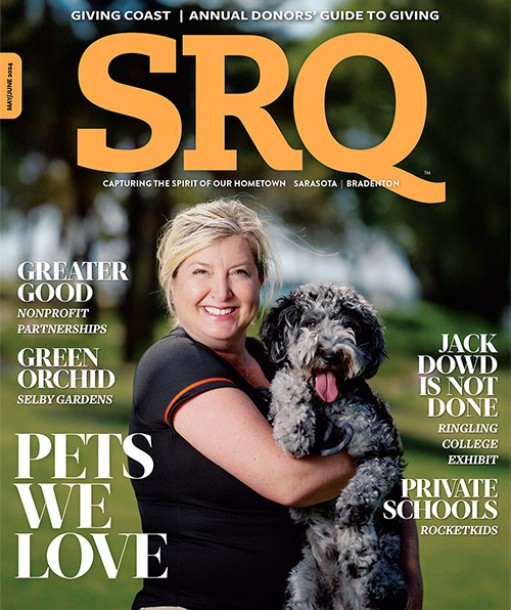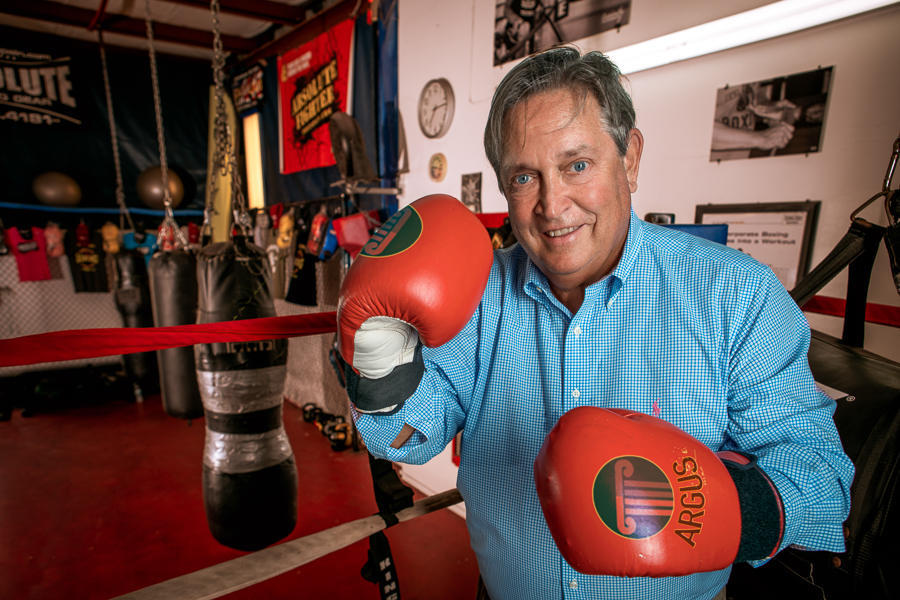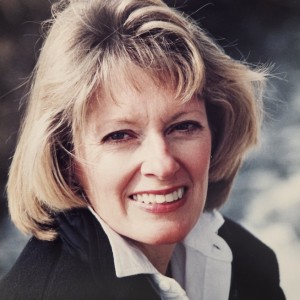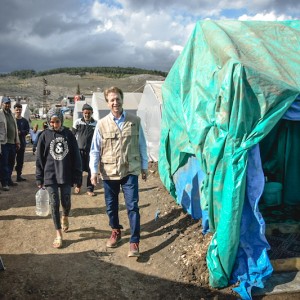Contentment doesn’t suit Kerry Kirschner. That’s not to say that Kirschner appears an unhappy man. Indeed, a signature chortle often accompanies his grimmest assessments of the future. He lights up when talking about his children, all success stories in their own right in fields including education, sports management and manufacturing. But after decades of shaping public dialogue on the Gulf Coast, his face still turns serious when asked about the direction in which Sarasota is going today. “When I look at our elected officials now, I don’t see in any of our elected bodies a strong direction or an interest in what we want our community to be in the future,” he says. “You know, it’s all seemingly a lot of government as usual, and no concern with how me make this a better place.” It’s frustrating to this child of the Suncoast to see since thoughts of a better future carried him through every decision in his life.
Kirschner was born in Bradenton in 1946, a handful of years before his family moved to Sarasota around 1952. The son of a brick mason, he would temporarily leave this world behind when he finished school and headed off to New York. White-collar work just didn’t exist in Sarasota at the time. “Even if you had a college degree, you were lucky if you had a job as a bank clerk,” he recalls. Straight out of school, he worked at some pharmaceutical and chemical manufacturing companies, first at Smith, Kline and French, then Branson Ultrasonics, then Schering-Plough. That last stop is where he got into consumer product research, and he went from there into Revlon just as the company unveiled an antiperspirant product. Kirschner would run that division for years, answering directly to company founder Charles Revson. It proved an eye-opening experience. “His whole management style,” Kirschner says of Revson, “was to have people at one another’s throats.”
The work took Kirschner around the world, but as he grew his own family, the Gulf Coast called him back home. After a stint at Frances Denney Cosmetics, he came back to Florida. In 1976 he returned to Sarasota, but there remained a dearth of professional jobs, so he purchased Blue Heron fruit shippers and supported his family moving crates of citrus. His own children still marvel at the decision. “To go back to blue jeans and the backbreaking labor of lifting packages of grapefruit, going into the citrus fields, lighting smudge pots,” says son Kelly, “it’s hard to contemplate him—or me at that point in my career—making a choice like that with small children.”
But for his own children, Kirschner wanted more opportunity, and he didn’t want them to have to head north to find it. That’s why he helped form the Indian Beach/Sapphire Shores Neighborhood Association, why he sought out and attained a spot on the city Planning Board. And after a lawsuit introduced single-member district elections to the City of Sarasota in 1988, he ran for City Commission. It was an exciting period in office, when Sarasota made national news over ordinances about nude beaches and when the city decided to build Ed Smith Stadium in Sarasota, then as a spring training home for the Chicago White Sox. He appeared on the Donahue national talk show to debate high-profile issues with fellow Commissioner Fredd Atkins. And in 1990, he became mayor.
But he only served a short time on the commission before moving into his first job at a major community institution when he was named marketing and development director for Mote Marine Laboratory. Kirschner found the job required more social savvy than running for office. “In a way, it’s more political without being elected,” Kirschner says. “You are charged with keeping up with what’s going on in the community.” His profile remained high and his connections in the business world quickly grew.
Then in 1994, the executive director position opened up at The Argus Foundation, a public policy advocacy group supported by CEOs and company presidents for firms based in Southwest Florida. It’s where he would spend the next 21 years of his career.
Argus was established in 1983, more than a decade before Kirschner took the helm, but business leaders credit Kirschner with bringing the organization a powerful voice that lasts to this day. “Argus would not be Argus without the contribution that he made,” says Rod Hershberger, Argus president.
When Kirschner took over, he immediately took a stance as analytical about the business environment in Southwest Florida as it was promotional. His general posture in many ways stands in contradiction to the simplified view of Gulf Coast politics as a battle of neighborhoods versus developers. His mission was to make sure everybody understood that business leaders accomplished the most for a community when they were treated as, and acted as, neighbors themselves. “I always try and say that if you look at development, the most intrusive, obnoxious developers are the ones that don’t live here,” he says. “The best developments are done by those who spend their lifetimes here. And despite all the protests of ‘no growth’ in Sarasota, it’s really done us well to have this constant challenge.”
So the goal for Kirschner has always been to make business leaders an integral part of the community. Sarasota should not just be a place where land is sold to benefit CEOs living elsewhere. Sarasota should be a place the CEOs themselves want to live.
He notes the most newsworthy development approved in the last year, a rental apartment complex being developed north of Fruitville Road, comes from Sarasota developer and landlord Harvey Vengroff. And part of the appeal of that project has been filling a local need for affordable living space in the city.
That goal has always been a bit of a passion for Kirschner. He recounts a conversation he had 25 years ago with a mayor of Longboat Key who joked that affordable housing on the islands was in the $300,000 range. “He said that with no recognition of all the services they expect to be provided to them in order to enjoy the lifestyle they have,” Kirschner recalls. So in his eyes, being pro-business also involves being pro-employee. A CEO can’t create thousands of jobs on the Gulf Coast if prices make it impossible for employees to live here.
Kelly Kirschner, who also ended up serving as mayor of Sarasota two decades after his father, appreciates that in a position generally considered as advocating for the powerful, his father was raising issues like income inequality long before activists occupied Wall Street. “In the early 2000s, he was talking about a disparity that existed and how untenable that was,” Kelly says. He references a study put out by Argus around that time that spotlighted problems facing the working poor and advocating for more available housing, better incomes and access to quality education. Through the years, Kirschner would be a voice for funding public schools and providing infrastructure throughout the region, all efforts that boosted the business environment from the bottom up.
“Kerry has such a deeper understanding of issues, policy, history and solutions than most elected officials,” says Christine Robinson, who last year succeeded Kirschner as executive director of Argus. Like Kirschner, she first served in public office (her second term as a Sarasota County Commissioner ends in November). “His long-term approach to solving public problems and coming to the table with well-researched solutions made Argus regarded as a community resource in both the public and private nonprofit sectors,” she says. “If I can fill a pinky toe of his big policy shoes, I will be lucky. He has certainly left his mark on this community through his well-educated work on not just economic development issues, but social issues as well. Our community is thriving because he quietly brought solutions to quality-of-life problems to the table without fanfare.”
While Kirschner gets celebrated among business leaders as a fierce advocate of commerce, he also managed to do so without burning political bridges or scorching any civic earth. Indeed, political allies say his most valuable attribute, besides knowledge of issues, may be simple amiability. “The man knew everybody,” Hershberger says, “and he could dig into an issue and could get his point across without offending anybody.” And during the period when Kerry ran Argus and Kelly served at City Hall, the balance between keeping a good personal friendship while holding ground fiercely in public debate seemed more important than ever. The task seemed especially dicey considering Kerry typically supported pro-growth business initiatives while Kelly’s political identity was largely built upon being a voice for neighborhoods and quality-of-life preservation. “Kelly has passion for things in this city,” Kerry says with a chuckle.
Both Kirschners recall the issue in town where they were most at odds. Florida Power and Light, the power company that holds a franchise agreement to provide service in the City of Sarasota, sought to renew its agreement with the city and wanted a 30-year commitment. Kelly, who held the mayor’s gavel at the time, thought such a long-term agreement absolved the company of accountability, but Kerry saw FPL as a critical corporate partner providing a needed service in the community. During one memorable exchange at a public meeting, Kerry spoke in favor of the FPL agreement; as soon as he finished, Kelly asked that it be put in the record that FPL was a donor to the Argus Foundation. When Kerry tried to follow up on the point of information, Kelly gaveled his father and told him his speaking time was through. “It was one of my more gratifying moments as an elected official,” Kelly recalls.
Of course, it’s noteworthy that whoever won that moment, Kerry did win the issue at hand. FPL got its 30-year agreement and will be the energy provider to Sarasota for the next quarter century. Kerry still scoffs at the notion the city could just provide its own power supply without FPL’s help. Kelly, though, maintains that a franchise agreement has allowed the power company the chance to raise rates without explaining itself in full to the public. To hear Kerry describe his own goals, nothing boils down simply to what’s good for business or neighborhoods or corporate partners or private citizens. Ultimately, he sees a chance for a strong community that benefits all that live or work within it. And in many ways, he has seen success in his own life that demonstrates advancement of that goal.
His four children, all adults, each represent a success story that speaks to his parenting skills. Kelly today serves as vice president and dean of executive and continuing education at Eckerd College. Oldest son Sean serves as an Army colonel stationed right now in Utah. Kent Kirschner is the CEO for Sarasota marketing firm MobileBits. His daughter Katie Haas is president of Florida operations for the Boston Red Sox, which conducts spring training in Fort Myers (of note, Katie’s husband Danny Haas does scouting for the Baltimore Orioles, which trains in Sarasota).
But he always wants to see improvements in Sarasota, and remains involved today as much in promoting corporate citizenship as advocating for business. As he talks about achievements at Ed Smith, he laments that the Orioles today don’t allow as much public use of the stadium as the White Sox did in the early 1990s. And he decries the use of incentives to lure companies here when many of those companies then do little to boost the community once they arrive.
And that’s where that lack of contentment comes in handy. He isn’t happy when the County Commission proves inflexible about public transit routes and he doesn’t like when the city shows intransigence about expanding facilities in town. He also doesn’t like when companies take tax breaks but provide little contribution to philanthropy in this region.
“We really need to dedicate ourselves, both through our community and our elected officials, to be what we want to be in the future,” Kirschner says. “That’s what it all comes down to for me.”











